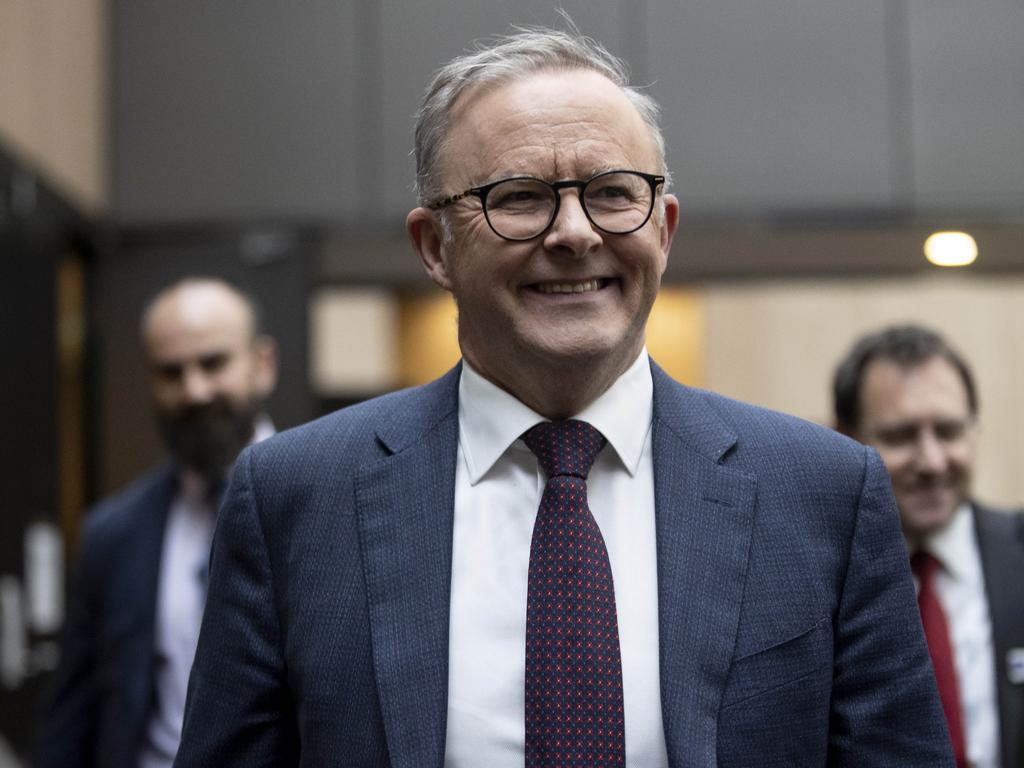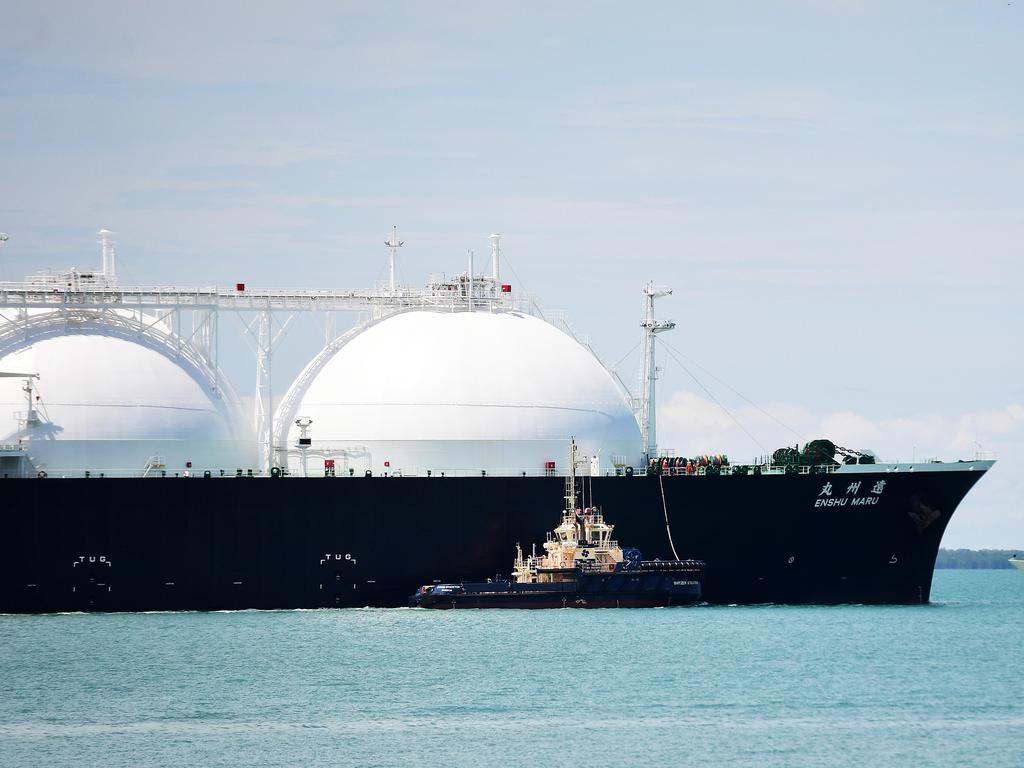Grim warning from EnergyQuest: Gas price cap ‘would kill imports’
Consultancy EnergyQuest has issued a grim warning that a price cap for Australia’s domestic gas industry would kill off LNG imports and delay big projects.
A price cap for Australia’s domestic gas industry would kill off LNG imports and delay big projects including Santos’ Narrabri development, consultancy EnergyQuest said, while forecasting tariffs would remain at elevated levels for the rest of this decade.
The stark warning may spook the Albanese government as it considers implementing a price cap on the east coast gas industry aimed at providing a quick fix for manufacturers who say factories may shut unless prices ease.
Big users have been calling for a $10-a-gigajoule cap, well below current market prices, but LNG importers including billionaire Andrew Forrest would lose money at those rates. Major developments including Santos’ Narrabri project in NSW could also be sidelined, leading to a year of domestic supply being lost or delayed through introducing the cap.
“While superficially attractive, regulation via price caps could easily make the situation worse,” said Graeme Bethune, chief executive of EnergyQuest, which releases its east coast gas outlook report on Monday.
“We estimate that introducing a $10GJ cap could remove or delay the equivalent of more than one year’s east coast domestic supply – 700 petajoules – in less than eight years. It could not only kill LNG imports but also development of the Narrabri gas field in NSW and the Beetaloo field in the NT and inhibit the development of much of Arrow Energy’s acreage in Queensland.”
Manufacturers are being offered gas contracts of up to $35 a gigajoule – more than triple levels of a year ago – as an international crunch filters through to the east coast along with a forecast shortage of local supplies in the market. Labor forecast in the federal budget a 40 per cent jump in gas tariffs over the next two years, adding to a cost-of-living crisis. Part of a tight domestic supply outlook has been caused by the ongoing decline in gas volumes from ageing fields in the Bass Strait, off Victoria’s coast.

However, EnergyQuest said the Gippsland and Otway basins off Victoria were showing a much improved production outlook, pushing back the immediate need for LNG imports, even as 2022 will likely mark a peak for east coast gas production.
NSW LNG imports – likely through Mr Forrest’s Port Kembla plant – are now required in 2028 rather than 2025 due to better than expected Victorian production. Still, by 2034, LNG imports are expected to supply half of NSW, Victoria, Tasmania and South Australia’s gas needs.
In the longer term a lack of LNG imports would force the need for contracts to be broken with Queensland LNG exporters, hiking sovereign risk and up-ending Australia’s international reputation.
“Chinese, Japanese, Korean and Malaysian LNG buyers would have to be willing to divert 195PJ – 17 per cent of Queensland exports – of gas that they have already paid to develop for the LNG export terminals, into the domestic market,” EnergyQuest said. “That is not something they are likely to be happy about and a move that would put Australia in the same league as Argentina in terms of sovereign risk.”
A price cap would likely “kill” much-need exploration and development of new reserves needed to top up depleting fields.
“The level of exploration expenditure onshore has remained depressed since 2015, reducing the chances of new exploration discoveries to add to the east coast gas resource base,” Dr Bethune said. “However, a price cap could kill exploration and development altogether.” Instead of a cap, the consultancy said subsidies to at-risk industry would prove a more effective policy tool.
“Direct government budgetary assistance to those most at risk is likely to be less vulnerable to long-term unintended consequences than price regulation,” Dr Bethune said. “Fundamentally, there are two ways of taking the pressure off domestic gas prices – increasing supply and reducing demand. Price caps do the opposite, by increasing demand and reducing supply.”
CBA said on Friday the Albanese government is better off slugging energy companies with a tax measure rather than a price cap should it stage an intervention to cut domestic gas tariffs.
It said a price cap would likely delay or even cancel several mooted LNG import plants.
The call for a $10GJ cap compares with spot prices of $23GJ in Queensland and LNG netback prices at $44GJ, reflecting LNG spot prices to North Asia less the cost of transport and liquefaction.
Australian Production and Petroleum Exploration Association chief Samantha McCulloch said price caps will undermine investor confidence and create medium-term problems.
The competition regulator has been tasked by Labor with finding a solution to the gas squeeze, including a focus on easing high prices.
Treasurer Jim Chalmers said while he was a “reluctant intervener”, there was now a strong case for action to ease a price crunch, in part driven by international factors including Russia’s invasion of Ukraine.






To join the conversation, please log in. Don't have an account? Register
Join the conversation, you are commenting as Logout